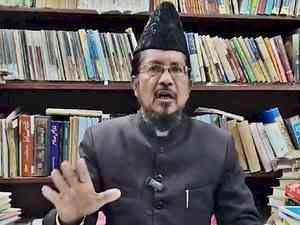Muslim leader's 'fatwa' calls New Year celebrations against Islamic principles
Ahead of the New Year, a controversial statement was made by Maulana Shahabuddin Razvi Bareilvi, President of All India Muslim Jamaat. On Sunday, he spoke about a fatwa issued against participating in New Year's celebrations and offering greetings for the occasion.

Bareilly, Dec 29 (IANS) Ahead of the New Year, a controversial statement was made by Maulana Shahabuddin Razvi Bareilvi, President of All India Muslim Jamaat. On Sunday, he spoke about a fatwa issued against participating in New Year's celebrations and offering greetings for the occasion.
He advised Muslims not to engage in such activities and stated that those who do would be considered criminals according to Sharia law. He stressed that Muslims should refrain from participating in these practices.
In a video message, he said: "Chashma Darul Ifta Bareilly Sharif has issued a fatwa regarding the celebration of the New Year. The fatwa states that celebrating the New Year as per the English calendar in January is inappropriate for Muslims. It also mentions that many Muslim boys and girls celebrate the New Year and exchange greetings, which is a religious ritual of Christians. Islam prohibits participating in or following the religious rituals of any other religion."
He further explained: "The fatwa also highlighted that New Year celebrations often involve dancing, loud noise, drinking alcohol, gambling, and other activities strictly prohibited in Islam. Anyone who participates in such events will be considered a sinner. Therefore, Muslims have been clearly instructed to stay away from such activities and not celebrate the New Year, as it goes against Islamic principles. In the eyes of Sharia, people who engage in such acts are criminals. They should refrain from such actions and never indulge in them."
However, Kashish Warsi, the national president of the Sufi Foundation, has reportedly criticised the fatwa.
He has reportedly called it a product of a “fatwa factory” that places undue restrictions on Muslims. Warsi questioned the selective labelling of practices as forbidden, arguing that genuine issues within the community remain unaddressed.
--IANS
brt/pgh


 IANS
IANS 








